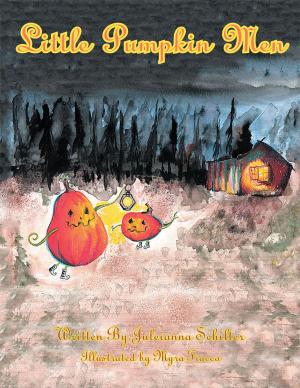| Author: | Catina Harris | ISBN: | 9781984529909 |
| Publisher: | Xlibris US | Publication: | May 23, 2018 |
| Imprint: | Xlibris US | Language: | English |
| Author: | Catina Harris |
| ISBN: | 9781984529909 |
| Publisher: | Xlibris US |
| Publication: | May 23, 2018 |
| Imprint: | Xlibris US |
| Language: | English |
The Merry-Go-Round Principle is filled with good solid values that teach children the importance of kindness, goodness, patience, and honesty. It teaches children the dangers of selfishness, unkindness, and insincerity and that when they do bad, they are only hurting themselves. It also teaches that when a person is good to someone else, they immediately reap a reward that will eventually come back to them in the form of the goodness they gave to another. Because our society has been compromised with many shades of gray, this book is a must-have if you want a resource that helps to reinforce rock-solid values that are rooted in truth and goodness to your children in a practical and fun way. The book tells the story of twelve different children who have varying personality traits, and these personality traits both help and harm the children depending on how they exercise these traits. First, you will be introduced to Sassy Sally, who has a really sassy mouth. She doesnt mean to be disrespectful when she speaks, but oftentimes she is. Sally learns the Merry-Go-Round Principle the hard waythat the sassy things you say to others will eventually work their way back around to you. Next, you will meet Grateful Gladys. She is a grateful giver. Gladys learns through experience that giving is good because when you give, it creates space in your own life to receive more good. Greedy Greg is the next character introduced to the reader. Greg is always seeking to get more than what he has. Hes a natural competitor, but he uses his competitive nature in not-so-good ways. Other characters you will meet through your reading include Polite Polly, Selfish Fred, Sincere Sam, Sneaky Pete, Mean Mike, Helpful Hannah, Hopeful Hope, Truthful Tray, and Shy Samantha. They are all beautiful children who are growing and developing in life, but they need positive parenting in order to prevent negative habits and patterns from forming in their early lives.
The Merry-Go-Round Principle is filled with good solid values that teach children the importance of kindness, goodness, patience, and honesty. It teaches children the dangers of selfishness, unkindness, and insincerity and that when they do bad, they are only hurting themselves. It also teaches that when a person is good to someone else, they immediately reap a reward that will eventually come back to them in the form of the goodness they gave to another. Because our society has been compromised with many shades of gray, this book is a must-have if you want a resource that helps to reinforce rock-solid values that are rooted in truth and goodness to your children in a practical and fun way. The book tells the story of twelve different children who have varying personality traits, and these personality traits both help and harm the children depending on how they exercise these traits. First, you will be introduced to Sassy Sally, who has a really sassy mouth. She doesnt mean to be disrespectful when she speaks, but oftentimes she is. Sally learns the Merry-Go-Round Principle the hard waythat the sassy things you say to others will eventually work their way back around to you. Next, you will meet Grateful Gladys. She is a grateful giver. Gladys learns through experience that giving is good because when you give, it creates space in your own life to receive more good. Greedy Greg is the next character introduced to the reader. Greg is always seeking to get more than what he has. Hes a natural competitor, but he uses his competitive nature in not-so-good ways. Other characters you will meet through your reading include Polite Polly, Selfish Fred, Sincere Sam, Sneaky Pete, Mean Mike, Helpful Hannah, Hopeful Hope, Truthful Tray, and Shy Samantha. They are all beautiful children who are growing and developing in life, but they need positive parenting in order to prevent negative habits and patterns from forming in their early lives.















